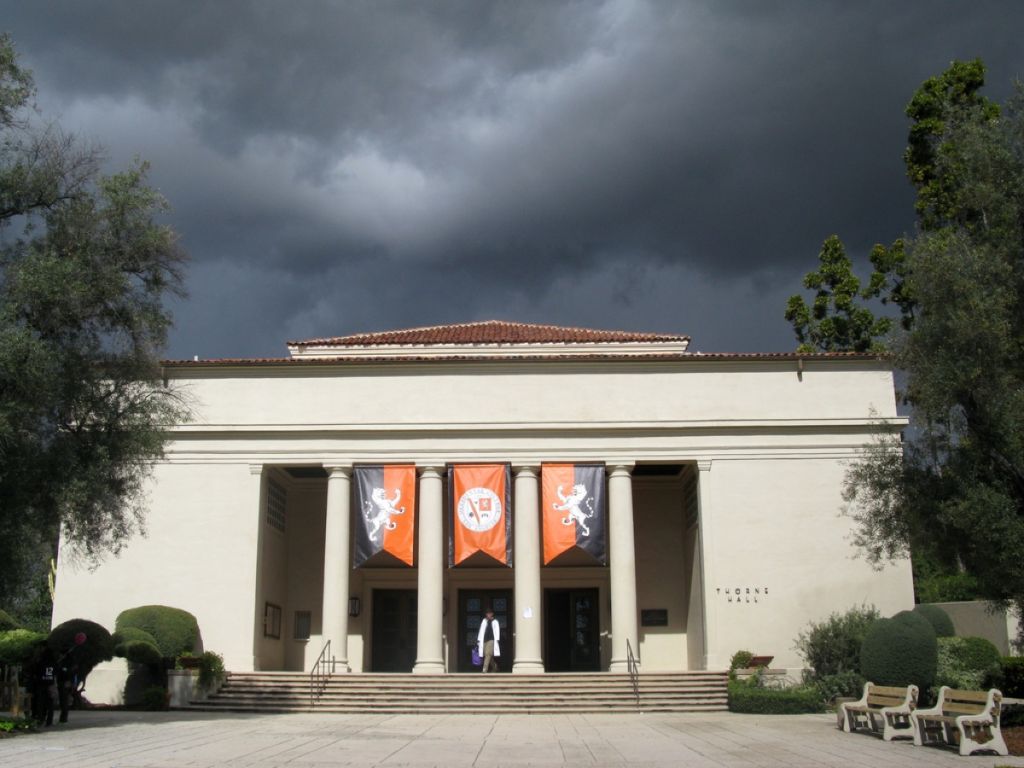My name is Paul Charbonneau, during the 2016–2017 academic year I was your student body president. My driving ethos in my position was to create a stronger community at Occidental. I attended 67 meetings with administrators and took James Comey-esque notes attempting to affect positive change. These meetings came following a period of tense student/administration relations.
I write today, a semester-and-a-half removed from my presidency because I still want to make Occidental a stronger community. I speak to students in times of resistance to administrative decisions, of administrators being asked to resign, to provide my perspective. I write to the Occidental administration as a face many of them respect, asking that they rethink how they serve students.
When I took office, I found student-admin relationships to be all but dead. After delivering a speech at Class of 2020 orientation where the administrative leadership team was present, only then did I gain access to all of our administrators.
It was then that I learned how our school works while hearing troubling rhetoric and discovering dangerous precedents. I acknowledge that there is no way to prove most these claims beyond my own anecdotal experiences, but I have recounted them as objectively as possible. I find it’s worth noting that Interim Dean of Students Erica O’Neal Howard and Dean of Students Rob Flot, have been exemplary in engaging with students. I found their work refreshing, in light of my experiences:
- Administrators cancelled agreed-upon monthly meetings through their secretaries without explanation, ignoring my pleas that they at least hear one student voice.
- President Veitch met with me only three times over the course of the academic year, due to the questionable policy that he is only guaranteed to be on campus one day a week, Monday.
- Hearing the idea that because students liked a professor, but actively challenged him during his tenure as Interim Dean of the College, that administrators saw “no point” in trying to engage with the students that challenged him or address their concerns.
- A Trustee claiming that divestment from fossil fuels was “too complicated for students to grasp.”
- ResEd telling me they prioritized the workload of their staff over the will of the entire student body.
- I begged the Office of Institutional Advancement all year to include students in their fundraising campaign and only gained traction when a professor called them out on not including student voices.
- In countless instances, administrators made decisions without a student in the room, and I was told that it was “just the way this works.”
- I was denied entrance to Board of Trustee committee meetings and even a nametag until the Chair of the Board said I could attend all the meetings so that there was at least one student present.
- Several administrators were willing to meet only with me as they found me “reasonable” and other students not, creating an inequity of access and placing an unfair burden on me.
- Several administrators expected students to act subserviently, wanting us to somehow appreciate the complexities of running a college we are not aware of, and wanting students to just “let them do their jobs”.
These sentiments are incredibly dangerous. Much like constituents are supposed to hold politicians accountable for their actions, we should hold administrators culpable.
A student that blindly trusts leadership is antithetical to the mission of our college. Occidental seeks to “provide a total educational experience of the highest quality — one that prepares [students] for leadership in an increasingly complex, interdependent and pluralistic world.”
Our world necessitates us to challenge our leadership. Preparing us for that world while simultaneously suppressing student activism is hypocrisy to the highest degree.
Occidental does not attract subservient students. Our campus is full of deep-thinking, passionate, critical students. Don’t dismiss them by waiting for “troublesome” students to graduate.
Embrace these students that make our college such a vibrant place; listen to their criticism and make it constructive. Our students become disenfranchised when you treat this resistance as a personal attack. Otherwise, our relationship with one another suffers, our student government weakens. Not only do we pay to attend, we chose to attend. We are stakeholders in this community, and we demand to be treated on the same level as you, instead of as misinformed youth.
I challenge every administrator at this school to eat lunch or meet with students at least once a week. We can learn more about your work, and you can learn how to better serve our needs. It fosters a community of understanding rather than divisiveness. Just listing your email and asking for feedback is not enough. Be proactive and act with intention.
To the students that feel disenfranchised with our school’s leadership, I empathize. I urge you to remain engaged and actively fight the problems you experience. Email an administrator. Continue to write opinion pieces and letters to the editor for The Occidental. Attend a Senate or Diversity and Equity Board meeting and provide input as a community member. Run for a position and help actively reform it, and change the stigma surrounding student governance. If not for the sake of strengthening this community we all call home, then for the principle of resistance that will continue into our post-Occidental lives.
I implore anyone that wants to discuss this article or speak with me to do so: pcharbonneau@oxy.edu.
Paul Charbonneau is a junior Diplomacy and World Affairs major. He was the 2016-2017 Student Body President.
![]()































